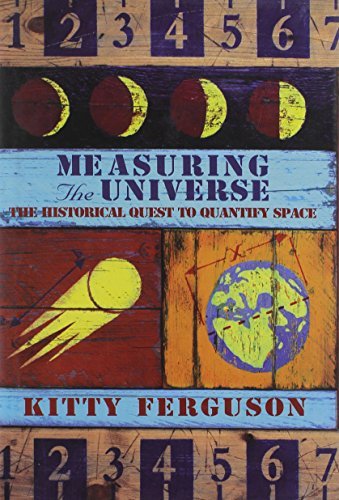What do you think?
Rate this book


The topic here is measurement of faraway, distant, difficult things. Starting with Eratosthenes, who found a way of measuring the earth's circumference, and continuing through to modern astrophysicists' quest to measure the universe itself, Ferguson takes us on a full tour of the seemingly immeasurable. Readers are treated to enthusiastic chapters covering all the basic steps astronomers (dating back to Aristarchus of Samos) have taken to understand the arrangement of astronomical objects. How big are stars? Is that black hole moving toward us or away from us? Where is the edge of everything? And how big will the universe get before it stops expanding? You'll meet the men and women who have sought answers to these seemingly impossible questions in this accessible history. Ferguson brilliantly illuminates their personal quests and demonstrates the usefulness of each discovery in driving the next attempt to measure the universe. --Therese Littleton
306 pages, Hardcover
First published January 1, 1900